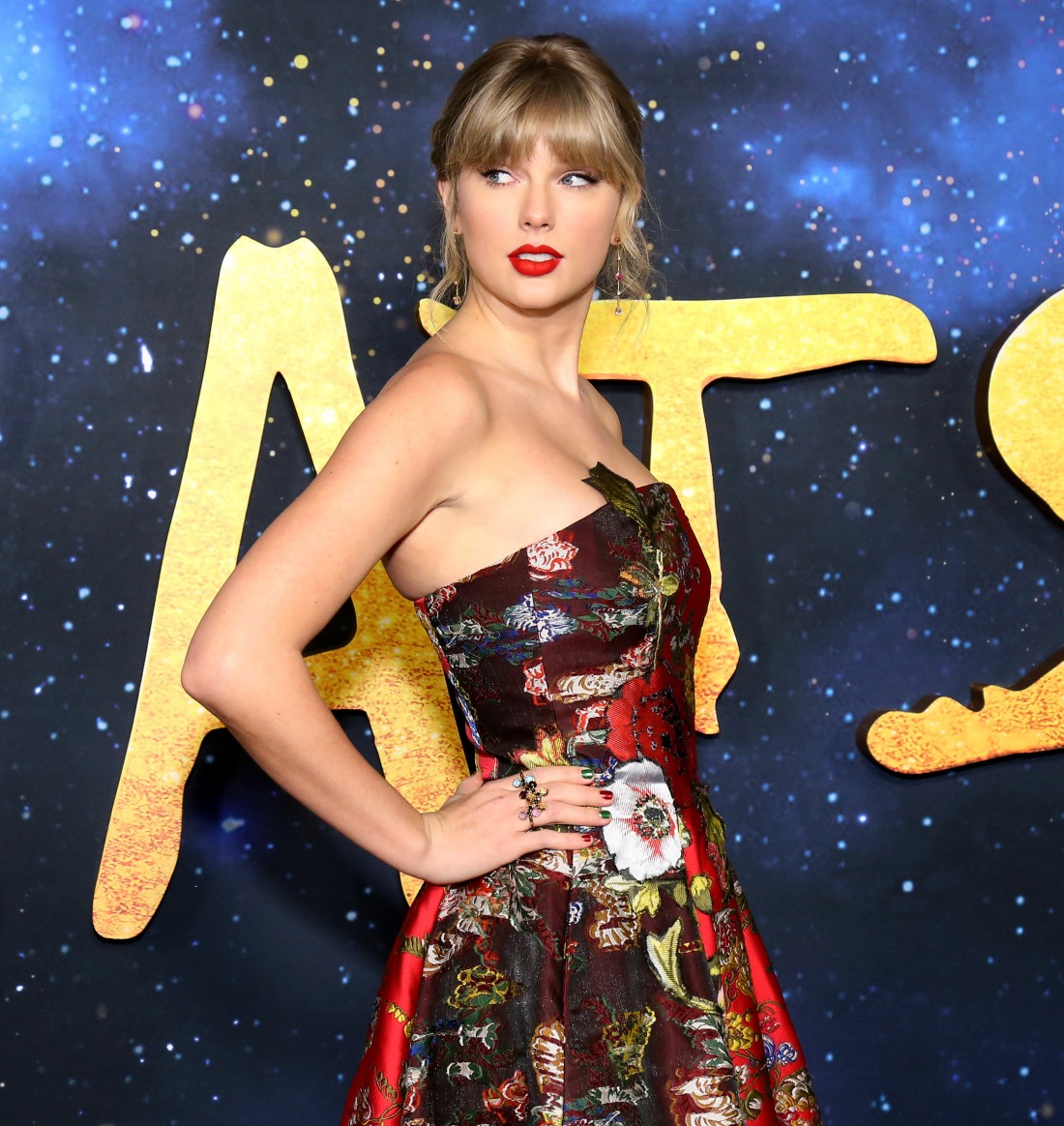Emma Watson has taken a big backseat during the promotion of Little Women. She attended one premiere and she did one magazine cover, and honestly? I think that was enough. Saoirse Ronan and Greta Gerwig seem to be doing the bulk of the promotion and that’s worked out for the most part. During the one premiere she attended – the New York premiere – Emma spoke to Variety about something which was in the news at the time, which was Taylor Swift’s 2019 beef with Scott Borchetta and Scooter Braun. Y’all know the backstory and it’s too exhausting to try to summarize, but my recap is that Taylor has a few good points, but she drowns out her own arguments with her Perpetual Victim Complex. But according to Emma, Taylor Swift is a “great example” of… knowing her own worth. Or something.
Emma Watson aptly compared “Little Women’s” turning moment of Jo March asking for the copyrights to her debut novel to Taylor Swift’s ownership struggle with Big Machine.
“It’s about believing in yourself and knowing your worth and owning your worth,” Watson told Variety about the importance of Jo owning her copyrights at the film’s New York City premiere. “Right now, the Taylor Swift situation is a great example of, you know, you’re young and you’re talented and someone wants to buy your work, but having ownership at the end of the day is super, super important because you don’t know what someone’s going to decide to do with that.”
Watson also likened the situation to the Monopoly board game: “I think people undervalue ownership. You know when you play Monopoly and you have a decision and you want to own something or get cash fast. The way to win Monopoly, everyone, is to own stuff. I’m just saying.”
Earlier in the interview, Watson revealed that the March sister she identifies most with in director Greta Gerwig’s film was Jo, played by Saoirse Ronan. “The role that I play is a really important kind of foil, or counterbalance to Jo, and I loved playing that, but I definitely resonate the most with Jo,” Watson said.
Emma is making a complicated situation simple (or simplistic) – Taylor and the Snake Fam are helped along by the confusion around the Byzantine structure of the music industry too. It’s easy enough for Taylor to just tell her fans “this is about owning my music” and “this is about big bad men being mean to me” and rather than the reality of “yes, Taylor got screwed over in business except that nearly every musical artist is screwed over worse than Taylor and the whole thing with Borchetta and Braun is more complicated than he-said-she-said.” As I’ve said for months now… if Taylor thought she had a legitimate and legal leg to stand on, I suspect she would be suing them and all of this would be figured out in court. The fact that she hasn’t sued them says something to me. All that being said, Emma’s words are sort of interesting and it goes into the murky operations of copyrights, publishing rights and who really “owns” the art and the artist.
Photos courtesy of WENN.

















Taylor got screwed.
Pretty much every other music artist, except Dolly Parton, who fought for her property rights early, got screwed too.
Springsteen, Tom Petty, and the Stones all lost rights to their early music as have thousands of lesser known artists.
The fact that everyone else got screwed too doesn’t justify or diminish what was done to Taylor.
Yes, Taylor is problematic as a human being but if her fight shines a light on and brings positive change to dark industry shenanigans, more power to her.
The industry is the major problem here.
This. I read it as « everyone got screwed so she will as well. That’s life ». And she didn’t say it was illegal. Of course she would sue if it was. Doesn’t mean it’s right. She was not given the option.
And her way of getting around it legally is to re-record everything. I suspect they will try to challenge the release of those new recordings in some way but it all comes down to the industry controlling all product and the artists who create it.
Nobody has said that what happened to Taylor is right or justified. The problem people have with her is she always makes it about her, that she’s the biggest and only victim. She keeps talking about sexism and bullying when it has absolutely nothing to do with her situation. Masters is an industry problem but Taylor paints it as a personal attack on her. She’s not shining a light on the industry at all. The only light is on her.
That’s not entirely true. Sexism is a factor here since the majority of the top players in music management are men. Frankly, old rich white cishet men. For any up and coming artist but especially a very) young female artist like Kesha or Taylor, that’s going to invoke larger societal frameworks of oppression and serious imbalances of power. I mention Kesha because we all know what she went through only for the guy (forgot his name) to still be free and powerful and defiant. Taylor still does not have the industry power of these guys. She is super successful but she isn’t at their level.
I’ve had a crime committed against me, and I didn’t sue because of the psychological cost. You never know what someone is going through.
Agreed. What happened to Taylor does happen to everyone else, which is why it’s so important she bring attention and change to the issue, on behalf of all that don’t have that kind of power.
Why should Taylor sue? She only has to wait until October or November 2020 and she can legally re-record all her albums except Reputation (which she can re-record at a later date). After that she is rid of Borchetta and Braun forever.
I used to love Taylor and her music. She used to seem more genuine and I liked her old music better. But the constant victim routine and childish vendettas against people when she is 30 years old made me dislike her. I think for the most part she’s annoying but harmless and hopefully her new attitudes toward things are real and not just pandering. But there is no doubt in my mind she got screwed over like hundreds of artists before her have. I also believe Scott and Bieber and the rest of their little crew enjoyed rubbing it in her face. They basically got caught with some screenshot grabs. But I also get that Taylor’s victim routine and getting caught only telling half of the story is why people don’t believe her. She did that to herself. People just don’t trust her. But this time I truly believe they never offered her the rights to buy her original recordings. Prince spent half his career fighting the music industry over his music. Countless other artists have been screwed over by the music industry. I just wish Taylor didn’t act so holyier than thou so I could root for her. She makes it so hard.
But I do not think she is harmless. I don’t exactly know who her fans are, but I am assuming it is younger girls who see her as a role model. She is role modeling playing the victim, being a mean girl, having a girl gang that bullies other girls.
I’m kinda conflicted on this. On the one hand, an artist should own their work. I agree with that. But only in so much as they didn’t exchange their artistry for a business deal to promote their work and provide a means to produce the work. I’m a designer in tech and we don’t own our work. We collaborate very much like musical artists do. But the work we produce, procured under contracts with clients is theirs. They pay for it. And the work we produce is also a property of our employers as they provide the means and connections to produce the work.
The only time I feel an artist’s work is theirs is if they produce and promote the work themselves. If they are their own supplier and distributor. Otherwise, the work produced, it’s just an exchange of labor and monetary compensation.
A lot of artists promote themselves in recent years. Cut the middle men out. All you need is talent, social media acumen, and a streaming platform. Look at Poppy, Lil Nas X, Lizzo, and countless others. I’d even throw in Lana Del Rey when she had her own produced Video Games music video. Tbh I’m surprised Taylor signed on with UMG. She’s big enough to go independent. Trent Reznor has done it, so has Radiohead. They’re all self sustaining in their business now.
I agree with Kaiser. She only has herself to blame. You can’t have your cake and eat it too. Maybe you can but that involves more personal sacrifice than she’s willing to forgo.
Im not conflicted about it and you’re absolutely right. She made that deal. And now she is unhappy with it. And is playing the victim about it and I take issue with that.
Ani DiFranco was one of the first musical artists ever to create her own music label because she didn’t want someone else to own her work. I think she started her record label in the early 90s.
It’s not that simple, Lil Nas X had a great song, and got lucky on Tik Tok, but all those other artists are signed to label deals, probably with similar terms to what Taylor had; Lana included.
Even Spotify works with payola, it’s not as simple as it seems to be successful as an independent artist. Some industry influence is almost always there.
In the end most end up signing because it’s very hard to get notable coverage or radio play, without a label.
I used to know someone who was a songwriter for a major music group from the 1970s whose songs are still played all the time. She said the smartest thing she did was insist on owning the publishing rights to the music — she has lived off the royalties ever since. She was friends with Janis Joplin, and if I remember correctly, she said it was Janis who told her to do that.
I’m glad shes making a stink. If you’re nice or think you have to be so perfect and thankful in the music industry, (that is very often women) and just go along with the more powerful and established people you are so screwed. If she took a bad deal taht doesnt mean she or anyone else shouldnt say “we took a bad deal”. Things should change in the industry as they are changing in so many other industries as far as power balance. I know someone in the industry who is ridiculously talented and has played with and contributed to so many artists over many decades and never got any credit. He is poor, talented, old, and uncredited. There are many like him. He is also gay which I think made it even more likely he’d be taken advantage of. But overall if you’re a noncompetitive or easy going person, or just too high to care at the time, forget respect in that industry.
These circumstances happen all the time in other industries and other artistic endeavors. Why is the outrage only reserved for singers and musicians? Plenty of painters make not-great deals with galleries or collectors early in their careers to get a few bucks for their work. If those works then get re-sold or auctioned off for outrageous amounts a few years down the line, the artist sees none (zero, zilch) of that money. Where they do profit is in the prices for their new work. This is the same deal Taylor made. She signed, as an unknown, a pretty standard deal in the music industry, and against all odds was a huge success. OK sure, that first deal she made wasn’t great, but her next deal with a new company was record breaking in its terms. Someone go ask most successful pro athletes how minimal their first contract was compared to their second.
A bad deal is a bad deal. I think she got a really good compensation over it. How often do better artists than her earn as much?
Not music industry, but still entertainment: I read the author of Witcher sold rights to the game company that made it. By the time the third one came out, they’d made billions. He was angry and sued them. Luckily for him they decided to work with him and strike a new deal with future games. But he made a bad deal and instead of throwing a fit, he should acknowledge he could have valued his work more. But unlike Taylor he was desperate for money because his son had cancer. It does peeve me that she’s the biggest victim ever. She has the power to influence much more than other artists. Instead she chose bullying via her fan base.
Do I agree with how Taylor went about it? No. But frankly, I’m surprised at how many people sided with Scooter. Plenty of exploited artists out there who no longer own their own work who didn’t wind up with a multi-million dollar careers. Music industry is just as nasty as any other major corp. The laws are on the side of the money, not the people.